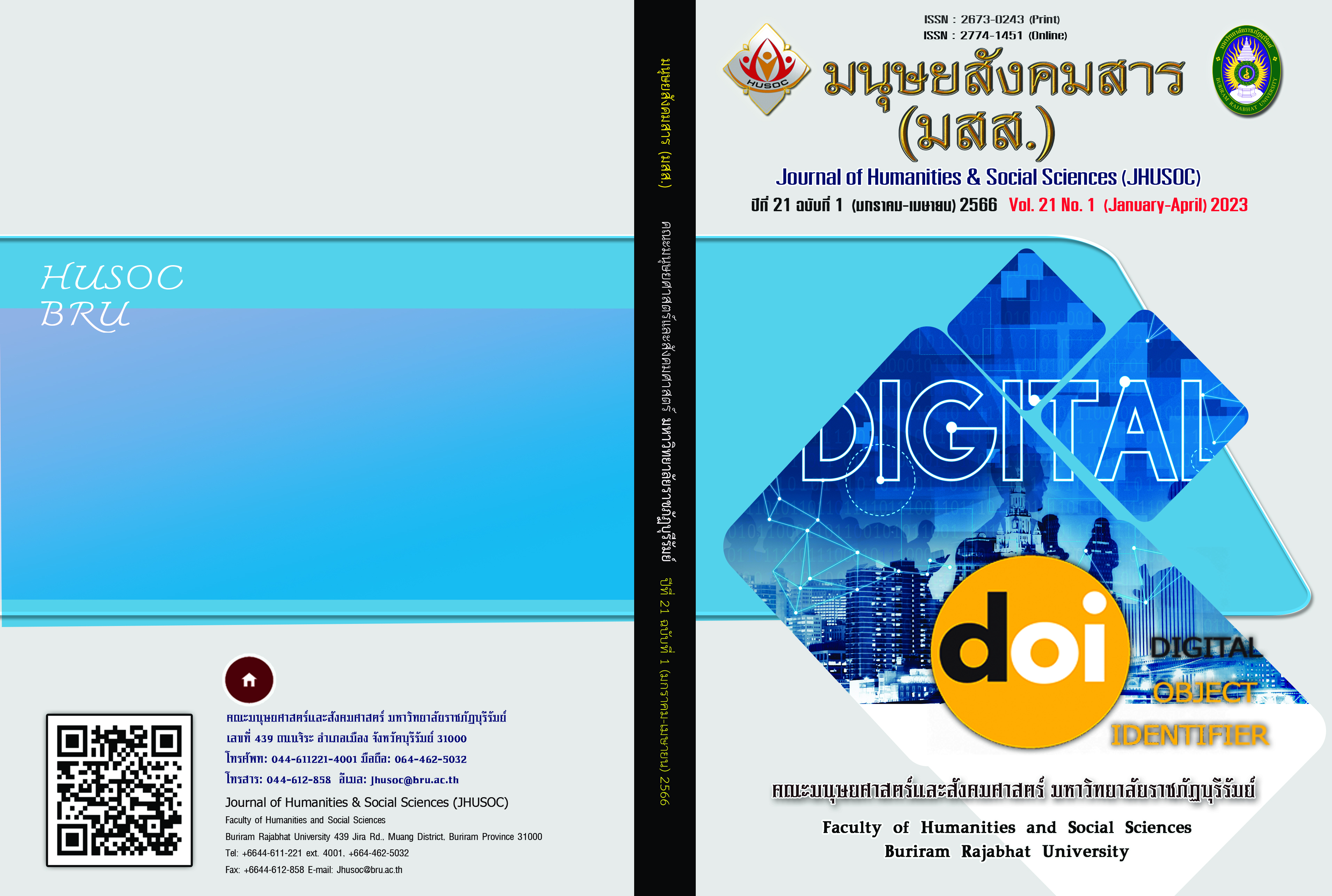การส่งเสริมให้นักศึกษาในสถาบันอุดมศึกษาเป็นผู้เรียนรู้ตลอดชีวิต
Main Article Content
บทคัดย่อ
ในสภาวะปัจจุบัน สังคมมีความเปลี่ยนแปลงอย่างรวดเร็วในทุกด้าน ทั้งทางด้าน เศรษฐกิจ การเมือง ความเป็นอยู่ของประชาชน สังคมและสิ่งแวดล้อม และความก้าวหน้าของเทคโนโลยี การเปลี่ยนแปลงเหล่านี้เกิดขึ้นอย่างต่อเนื่องและมีความซับซ้อน ดังนั้นประชาชนทุกช่วงวัย ยิ่งต้องจำเป็นที่จะเป็นผู้เรียนรู้ตลอดชีวิต เพราะการเรียนรู้ตลอดชีวิตจะทำให้พวกเขาได้รับความรู้และข้อมูลข่าวสารที่เพียงพอและทันเหตุการณ์ ซึ่งจะนำมาใช้ในการปรับตัวและเผชิญกับความเปลี่ยนแปลงดังกล่าวได้อย่างเหมาะสม สำหรับในบทความนี้จะนำเสนอการส่งเสริมกลุ่มนักศึกษาในสถาบัน อุดมศึกษาให้เป็นผู้เรียนรู้ตลอดชีวิต เนื่องจากกลุ่มนี้จะเป็นกำลังสำคัญของ การพัฒนาประเทศต่อไปในอนาคต แนวทางที่นำเสนอคือการปลูกฝังทักษะการเรียนรู้ตลอดชีวิตด้วยกระบวนการเรียนรู้ด้วยตนเอง ผ่านการศึกษาในหลักสูตรต่าง ๆ และผ่านกิจกรรมการเรียนรู้เสริมประเภทต่างๆในลักษณะของการศึกษานอกระบบและการศึกษาตามอัธยาศัย ในที่สุดนักศึกษาจะกลายเป็นผู้เรียนรู้ตลอดชีวิตอย่างต่อเนื่อง
Article Details

อนุญาตภายใต้เงื่อนไข Creative Commons Attribution-NonCommercial 4.0 International License.
เนื้อหาและข้อมูลในบทความที่ลงตีพิมพ์ในวารสารทดสอบระบบ ThaiJo2 ถือเป็นข้อคิดเห็นและความรับผิดชอบของผู้เขียนบทความโดยตรงซึ่งกองบรรณาธิการวารสาร ไม่จำเป็นต้องเห็นด้วย หรือร่วมรับผิดชอบใดๆ
บทความ ข้อมูล เนื้อหา รูปภาพ ฯลฯ ที่ได้รับการตีพิมพ์ในวารสารทดสอบระบบ ThaiJo2 ถือเป็นลิขสิทธิ์ของวารสารทดสอบระบบ ThaiJo2 หากบุคคลหรือหน่วยงานใดต้องการนำทั้งหมดหรือส่วนหนึ่งส่วนใดไปเผยแพร่ต่อหรือเพื่อกระทำการใดๆ จะต้องได้รับอนุญาตเป็นลายลักอักษรจากวารสารทดสอบระบบ ThaiJo2 ก่อนเท่านั้น
เอกสารอ้างอิง
Candy, P.C., Crebert, R.G., & O’Leary, J. (1994). Developing lifelong learners through undergraduate education. Canberra, Australia: National Board of Employment, Education and Training Commissioned Report No. 28. Canberra: Australian Government Publishing Service.
Crow, S. R. (2006). What motivates a lifelong learner? School libraries worldwide, 12(1), 22-34
Cropley, A.J., & Dave, R.H. (1978). Lifelong education and the training of teachers: Developing a curriculum for teacher education on the basis of the principles of lifelong education. Germany: UNESCO Institute for Education. Division of Higher Education Policy and Plan, Office of Higher Education
Commission. (2018). Long term higher education plan for 20 years, 2018-2037. Bangkok: Office of Higher Education Commission. [in Thai]
Ellinger, A.D. (2004). Concept of self-directed learning and its implications for human resource development. Advances in Developing Human Resources, 6(2), 158-177.
European Commission. (2002). European report on quality indicators of lifelong learning. http://www.aic.lv/bolona/Bologna/contrib/EU/report_qual %20LLL.pdf
Green, A. (2002). The many faces of lifelong learning: recent education policy trends in Europe. Journal of Education Policy, 17(6), 611-626
Grover, K.S., Miller, M.T., & Porter, S.A. (2017). Mature adult learners, self-directed learning practices, and quality of life. International Journal of Self-Directed Learning, 14(2),1-12.
Hagel, J. (2021). What motivates lifelong learners. www.http://hbr.org/2021 /10/what -motivates -lifelong-learners)
Jarvis, P. (2006). Towards a comprehensive theory of human learning. London: Routledge.
Kiley, M., & Cannon, R. (2000). Leap into…Lifelong learning. http://digital.library.adelaide.edu.au/dspace/handle/2440/71214
Kirby, J., Knapper, C., Lamon, P., & Egnatoff, W. (2010). Development of a scale to measure lifelong learning. International Journal of Lifelong,3(29),291-302
Knapper, C.K., & Cropley, A.J. (2000). Lifelong learning in higher education. London: Routledge.
Knapper, C. K., & Cropley, A. J. (2021). Lìfelong learning in higher education. London: Routledge.
Knowles M. (1975). Self-directed learning: A guide for learners and teachers. New York: Association Press, 1975.
Manning, G. (2007). Self-directed learning: A key component of adult learning theory. Journal of the Washington Institute of China Studies, 2(2), 45-57.
Office of National Education Commission. (2002). National education act,1999 and amendment (second edition),2002. Bangkok: Prickwan graphic limited. [in Thai]
Ouane, A. (2009). UNESCO’s drive for lifelong learning. In Jarvis, P. (Ed.). (2009). The Routledge international handbook of lifelong learning. London/New York: Routledge. 302-311
Sungsri, S. (2001). Lifelong education for Thai society in the 21st century. Bangkok: Office of National Education Commission. [in Thai]
Sununchai, S. (2008). Basic knowledge about lifelong education (Chapter I). In School of Educational Studies, Sukhothai Thammathirat Open University. A textbook of lifelong education and non-formal education. (fourth edition). Nonthaburi: Sukhothai Thammathirat Open University printing house. 1- 48. [in Thai]
UNESCO Institute for Lifelong Learning. (2022). Lifelong learning. https://www.uil.unesco.org/en/unesco-institute/mandate/lifelong-learning
University of South Africa. (2015). Lifelong learning. ABT2611/501/3/2015 Muckleneuk, Pretoria: University of South Africa.
World Economic Forum. (2020). These are the top 10 job skills of tomorrow – and how long it takes to learn them: Top 10 skills of 2025.


